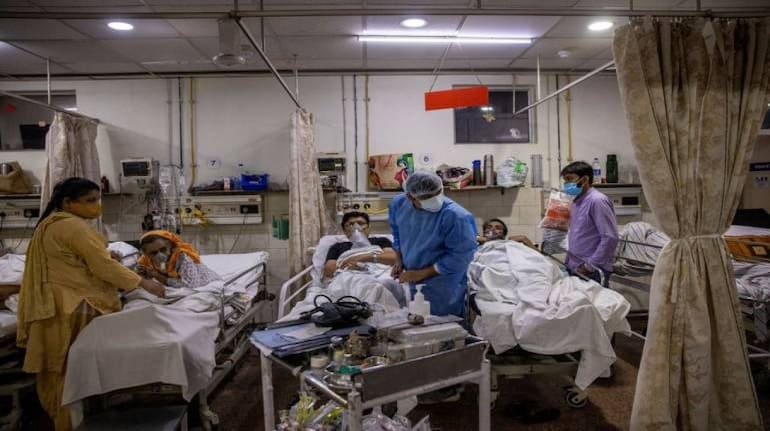



Bengaluru, which has emerged as one of the hotspots of the second COVID-19 wave, has also been hit by a rise in mucormycosis infections. Hospitals in the city are reportedly running out of beds to treat the rare fungal infection, also known as black fungus.
Top hospitals in the Karnataka capital, which had reserved wards for mucormycosis cases, are now saying that their beds are full, the Times of India reported on May 23. The report of beds being occupied to full capacity comes against the backdrop of the shortage of Liposomal Amphotericin B - the drug which is essential in treating black fungus cases.
Bowring and Lady Curzon Hospital, which is the nodal facility for treating mucormycosis, is reportedly struggling to admit more patients. All the 35 beds reserved for black fungus cases in the hospital are occupied, the newspaper reported.
The St John's Medical College, which is treating 53 mucormycosis patients, has also reportedly stopped new admissions. "We are unable to admit any more patients for black fungus treatment. We are helpless," the hospital's chief of medical services, Dr Sanjiv Lewin, was quoted as saying.
Similarly, the Minto Eye Hospital reportedly said that it was unable to admit a number of black fungus patients as it's already running at full capacity. The medical facility, which has so far seen 80 patients, has admitted 50 among them, whereas, the others were treated in OPD or referred to other hospitals, as per the Times of India report.
Also Read | Mucormycosis can spread through air, won’t cause any problem if person is healthy: AIIMS doctor
While Karnataka had, till May 16, officially confirmed 97 mucormycosis cases, the numbers are expected to sharply go up. The disease was notified under the Epidemic Diseases Act earlier this week, which would allow the state government to keep a tab on all cases of mucormycosis reported in each of the districts.
Across India, at least 7,250 infections have been confirmed, The Hindustan Times reported on May 21. Among them, 219 persons have succumbed to the rare fungal infection, the report added.
In Bengaluru, where mucormycosis cases have alarmingly spiked, the number of daily coronavirus infections also remains steadily high. The city's active caseload stood at 2,61,115, as of May 22, with the Bengaluru Urban district reporting 8,214 infections and 200 deaths in the preceding 24 hours, news agency PTI reported.
Discover the latest Business News, Sensex, and Nifty updates. Obtain Personal Finance insights, tax queries, and expert opinions on Moneycontrol or download the Moneycontrol App to stay updated!